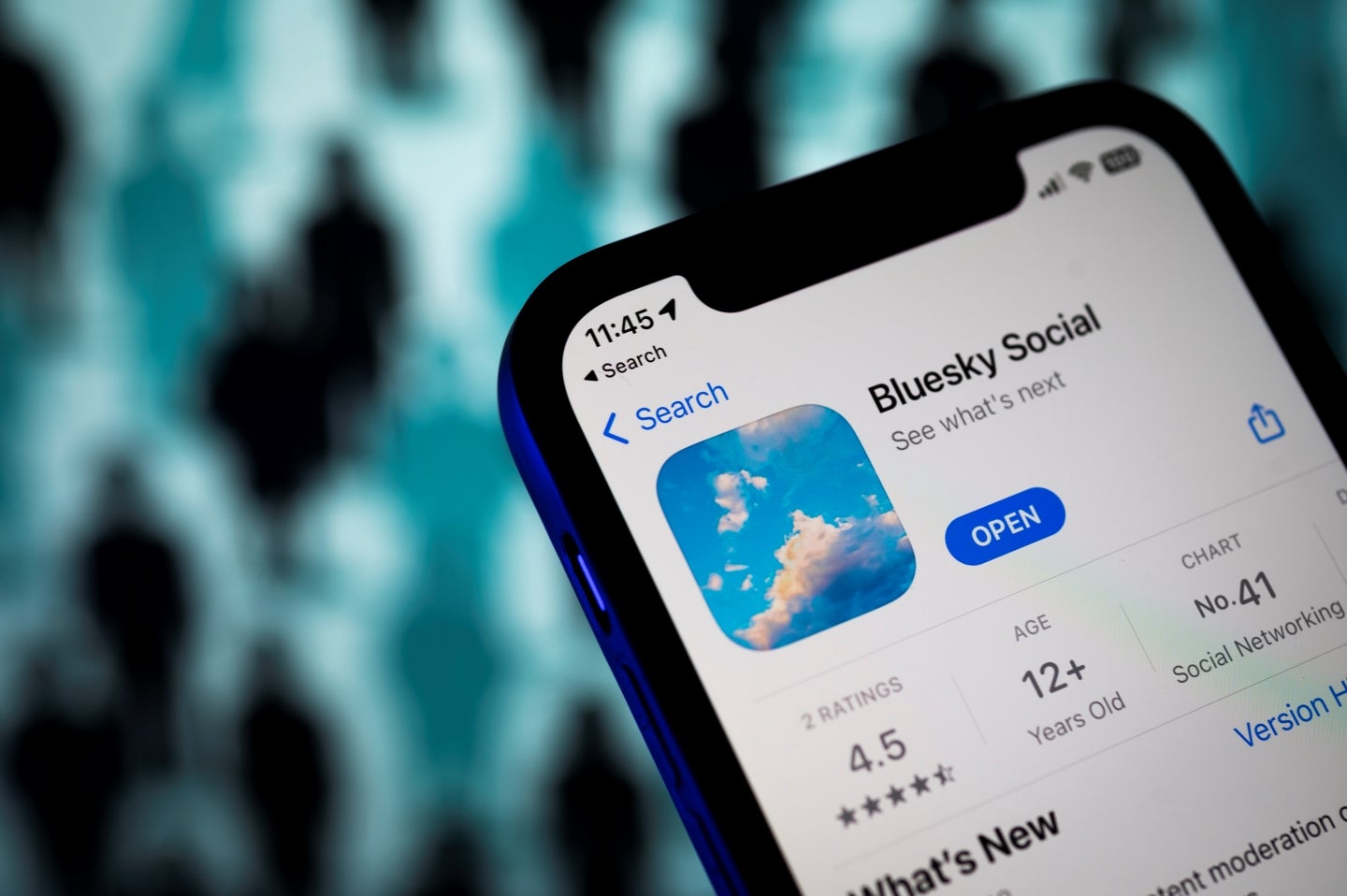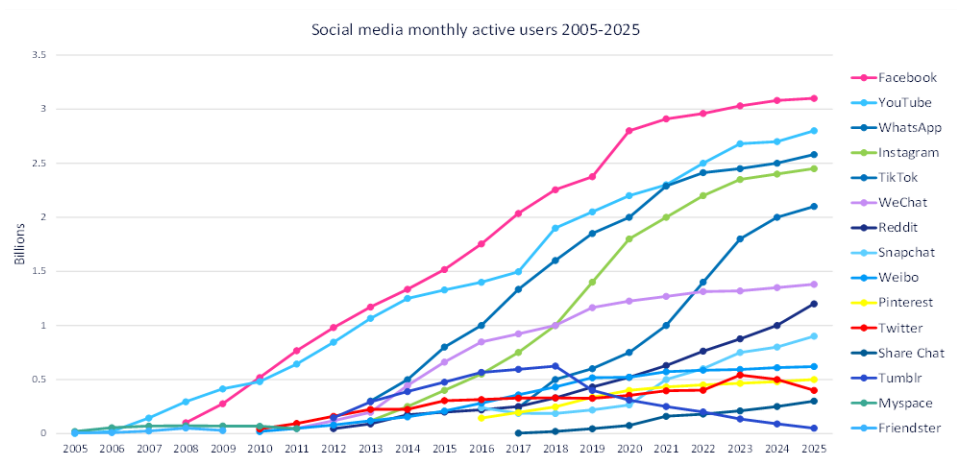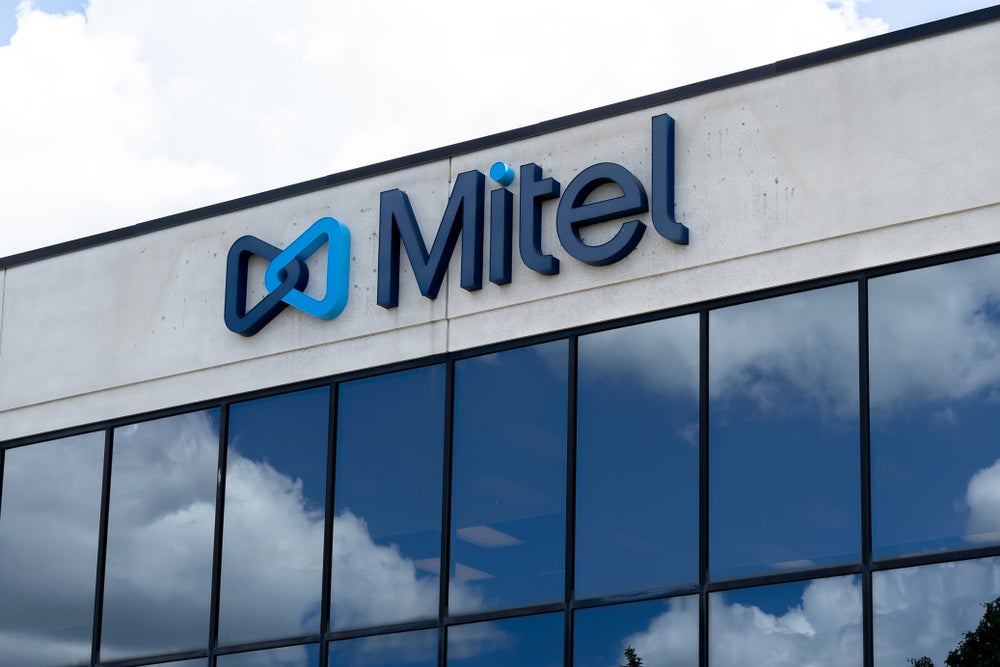
Decentralised apps (dApps) are fast becoming a popular alternative to Big Tech platforms such as Facebook or Instagram. Increased scrutiny over Big Tech’s data practices and a tumultuous takeover of X (previously Twitter) may have led many social media users to seek out private, smaller platforms.
DApps, as defined by GlobalData’s 2023 report into social media, are apps that run on blockchain or peer-to-peer computer networks rather than on a single computer. Because of this, they are typically known for greater flexibility in content moderation as well as enabling their users tighter anonymity.
Platforms such as Damus and Bluesky marketed themselves as direct alternatives to X, hoping to court the unsatisfied users after Musk’s 2022 acquisition of Twitter. Many of Musk’s changes to the platform, including the possibility of a paywall, have felt alienating to its existing userbase.
Whilst Twitter’s userbase had never surpassed platforms like Facebook, YouTube and WhatsApp, GlobalData research found that its userbase dropped significantly after 2022. This drop in monthly active users is expected to continue into 2025.

Musk’s takeover, however, is not the sole reason behind the rising popularity of dApps as an alternative to social media.
Amelia Connor-Afflick, senior analyst at GlobalData, stated that growing data privacy concerns and a spread of online harms on mainstream platforms has acted as “fuel” for dApp userbases.
How well do you really know your competitors?
Access the most comprehensive Company Profiles on the market, powered by GlobalData. Save hours of research. Gain competitive edge.

Thank you!
Your download email will arrive shortly
Not ready to buy yet? Download a free sample
We are confident about the unique quality of our Company Profiles. However, we want you to make the most beneficial decision for your business, so we offer a free sample that you can download by submitting the below form
By GlobalData“Major platforms have faced regulatory scrutiny, especially in the EU, for using user data to sell ads to third-party advertisers,” Connor-Afflick explains, “DApps’ distinguishing feature is the absence of a centralised authority to collect data to sell to advertisers. In fact, many of them are non-profits, such as Mastodon, and not driven by the need to sell user data.”
Whilst X was slammed this year over the possibility of introducing a subscription service, Connor-Afflick reflects that Meta is similarly introducing subscription ad-free accounts to evade further legislative pressure.
Social media and PR manager at UK domain provider Fasthosts, Chelsea Hopkins, spoke to Verdict on the role that data privacy plays in disrupting social media giants. In Hopkin’s view, the rise of dApps may put pressure on tech companies to strictly govern data. Many users who flock to platforms like Bluesky do so to “seek ownership” of their data.
“People are growing tired of companies using and abusing their data,” she explains, “serving them content they are not interested in and thus seeking an experience they can wholly curate instead of ‘the algorithm’ delivering them content they are not interested in, disagree with or are offended by.”
However, despite the exodus of users from X to Bluesky, Hopkins disagrees that the revenue of Big Tech owned social media platforms will be affected.
In part, she explains that many social media users may be prevented from migrating to alternative platforms unless the communities they participate in move to dApps together. Companies like Meta already have a monopoly over family usage, she points out, and can also adapt quickly to user behaviour.
Instead of moving to dApp alternatives, Hopkins instead noticed that many users unhappy with their experience on X or Facebook have begun returning to existing, sideline platforms such as Reddit or Tumblr.
“Long standing ‘alternative’ social media sites such as Tumblr are now seeing a resurgence,” Hopkins elucidates, stating that the initial mass move of artists and creatives to X after Tumblr updated its content guidelines in 2018 has now essentially reversed now that both sites have updated policies.
“Reddit is also seeing a return of flash news and on-the-ground reporting,” she states, crediting this with the changes Musk has made on how news is presented on X and the views that are now being promoted on the site. Longtime Twitter users now found themselves on a new site that promoted views that not made them feel vulnerable posting.
Content moderation and its affect on monetisation
Whilst the rise of dApps may threaten the active userbase of Big Tech social media sites, content moderation continues to be a major hurdle for both decentralised and mainstream platforms.
Alternative social media sites are not solely in reaction to greater data scrutiny or Musk’s acquisition.
DApps have had a fundamental role within online recruitment into digital extremism. Whilst many users flock to dApps for greater freedom of expression or anonymity, these same qualities often attract communities with sideline politics or views.
Austrian researcher and author Julia Ebner explains in her book Going Dark: The Secret Social Lives of Extremists, how social media and content moderation has affected conspiracy theories in the wake of the 2020 Covid-19 pandemic.
“The past has shown that both health crises and economic crises provide ideal breeding grounds for extremism, polarisation and conspiracy theories,” she writes, “Now we are facing a combined health and economic crisis, with social media enabling the rapid growth of conspiracy theories.”
The moderation of content on dApps relies primarily on user moderators. Whilst platform-wide community guidelines of mainstream social media sites have come under scrutiny, having a dedicated team of content moderators is the only way that sites can keep up with regulating the amount of content created.
The moderation of content directly affects the profitability of social media sites in the digital marketplace.
In an academic report into the content moderation between dApps and mainstream social media apps, researchers Nicole Buckley and Joseph Schafer found that Big Tech apps had removed considerable amounts of content to appease advertisers on their sites. Whilst this more aggressive approach by Big Tech may have led to more users fleeing to dApps, monetising such apps remains a difficult challenge as brands refuse to migrate.
Social media remains an ad-driven business model. For dApps to ever truly disrupt Big Tech owned platforms, balancing content moderation with data privacy will be a necessity.







